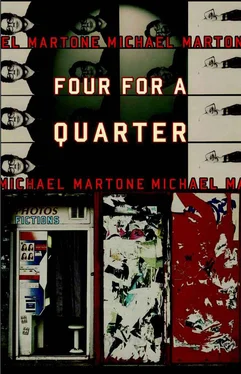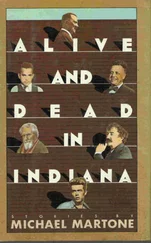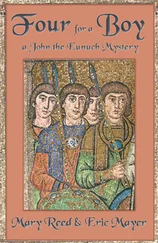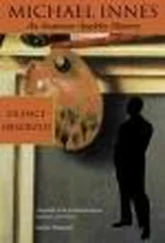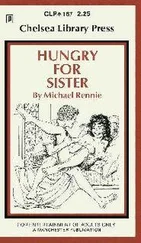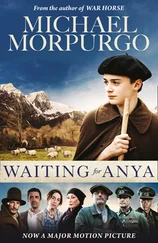The next morning you wrote your postcards, naked, at the desk. Maids were making up the next room. I watched David Letterman on TV making jokes about Muncie. Turning, you said, “Let's,“ licking ten cents Justice, “go there next.“ On my way to the shower, I stopped behind you. You were writing that animals need their licks. The sounds you make, the ones that are not quite language, name nothing.
“Knock, knock,“ I say in your ear. “Who's there?“ you say from another world.
MUNCIE
In Muncie, we are staying at the Hotel Roberts, downtown. And, though the elevator is automatic, a man wearing a Nickel Plate conductor's hat pushes the buttons. We have learned that the third Middletown study is in progress. We are mistaken for sociologists by the old men we sit with in the lobby when we watch TV. Before we can quiet them with the truth, they tell us their church affiliations and bathroom practices.
The first night here, we ordered a pizza by phone from a campus takeout to be delivered to our room. Since then we have gone through the yellow pages for anything that will be delivered. When it arrives, Theresa answers the door wrapped in the hotel bath towel. After awhile we begin to receive all sorts of things we never ordered — pints of macaroni salad, goldfish cartons of fried rice, heads of lettuce. They are delivered by college boys wearing Ball U T-shirts, who then sculpture obscene animals with the warm tinfoil. Everything seems to have the same tomato paste base.
If we leave the Roberts at all, it is to watch the summer basketball leagues play on a court next to one leg of the high school drag. The cars go by honking. The players glisten in the single scoop lamp. The backboard is perforated metal used in temporary runways. The hoop is a red halo with not even a metal chain net dangling from the rim. Or we go to the Ball factory and watch them make mason jars, press the rubber lips to the tin lids. They have shelves of jars the Ball brothers canned seventy-five years ago. The seal holds stewed tomatoes with yellow seeds, embryonic eggplants, black butter chips and sweet gherkins no one will taste, okra, of all things. We have been there several times, and unlike other factory tours, there is nothing to sample unless we care to can and wait a season. We do keep our loose pennies in a Ball jar, and Theresa makes the boys reach in it for their tip, a monkey trap. They can't withdraw their clenched fist through the narrow mouth of the jar without letting go of the money. She leaves them laughing, closing the door against them with the flat of her foot.
But all of this is typical here, or, because we do it in Muncie, it is typical. We have seen the sociologists on the sidewalks, shielding their eyes with their clipboards, trying to cross the street. They take pictures of barbershops and trophy stores. Or they sit and count cars in and out of the parking lot or look for butts beneath their feet. In every room there are questions to be answered with special pencils. “What brings you here?“ In each case, love. We write that our dream is to open all the cans one at a time and eat vegetables older than our grandfathers. We want everything delivered to us. Theresa wears nothing but two pasties of pepperoni. I am reading books on pickling. The scientists will figure out what is going on here.
IDAHO
As he plants, he dreams of potatoes. Enough already with the potatoes, he dreams, but continues to dream of potatoes. In the mountains of Peru, farmers grow potatoes above the clouds in terraced fields each no bigger than a backyard in Illinois. Hundreds of varieties are all mixed together. The tubers are the size of marbles, golf balls, gooseberries, gallstones, mothballs. They look like each kind of toe on a farmer's foot. Potatoes that look like carrots. Potatoes that look like radishes. Potatoes that look like potatoes. And the fields are not contoured but planted in rows with the furrows pointing straight down the slope so when it rains all that Peruvian rain it doesn't rain potatoes. The water runs off quickly, spilling like waterfalls over the sides of the mountains onto fields below before it has a chance to erode the crop on the one above. One day, he thinks, he will buy up the abandoned rail bed here and turn it over, planting his potatoes in one long pass, no turning the machinery. One swipe for the planting. One long haul for the hilling up. Another single pass to root out the fruit that will bubble up in his wake and float on the tide of the tilth. In Peru, the potatoes come in all colors. There is the purple potato. There is the red potato like the red potato here in Idaho. There is an orange potato the size of an orange. There is a green potato that isn't poisonous. There are hundreds of different browns. There is the blue potato, the blue potato of Peru. In Idaho, his seed is certified.
ILLINOIS
The way they see it, it's their job to strip-mine this state. They go from one little town to the next looking for the mom-and-pop shops going out of business and buy up all the inventory they've had in the basement or attics or out back since the forties, the fifties, the sixties. Sundresses and alpaca jackets. Indian bead belts and saddle shoes in their original boxes. Leather letter jackets and tartan jumpers with the mint safety pin. Pegged pants and silk Hawaiian shirts. Rooster ties and Arrow collars. Brownie sashes and Cub Scout kerchiefs. Untouched and packaged, the package as valuable as the thing inside. It's all shipped back East or to the West Coast. And they must eat in the diners on the main streets where they have always imagined the women cooking there would turn to them at the counters and display the secret to the homemade mashed potatoes. Look! The implement itself. The worn wood handle. The chrome tang. The oscillating business end of the utensil, still caked with the milk-white paste of potato. But that never happens. The breaded tenderloins are served with french fries in plastic baskets lined with stained waxed paper.
INDIANA
Above the sink in the kitchen was a window and, on the sill, an old jelly jar, the color of the cartoon caricatures etched on its glass fading from too many washings, perhaps, or from the constant exposure to the sunlight. There, there was always a chunk of a potato pierced by a trio of cocktail toothpicks, tipped with brilliant spun-cellophane buds, in such a way that they held the potato suspended on the lip of the jar so that its underside just touched the dingy water beneath where already a fur of roots sprouted and reached down. Soon, soon, the eyes above ripened into those pale segmented branches that ended in a stunted leaf or two and, once or twice, an already fading flower. Something to look at as I washed and dried the dishes and regarded the day outside already lengthening or already turning into twilight.
IOWA
There is only one potato farmer in Iowa, five hundred acres near Muscatine, surrounded by melon farms on the sandy soil. The country gets confused sometimes. One “I“ state looks the same as any other “I“ state. You tell folks you're from Iowa and they say, Iowa, potatoes, right? Well, in this case they would be right because here is a five-hundred acre field of potatoes the locals say looks like the worst stand of beans they have ever seen. It all goes to chips, shipped to the Frito Lay plant in the Quad Cities. At night, the farmer of the only potato farm in Iowa watches a woman on the Tonight Show who collects potato chips she has found bearing images of the famous rendered on the canvas of starch during the deep-fat frying. “You can see Nixon,“ she says. “And this one looks like Gorbachev right down to the stain on his forehead.“ She is from Indiana, where the country that watches late-night television now believes its potatoes are grown. “Here is Queen Victoria, Mickey Mouse, Kojak, Betty Crocker.“ She has hundreds she keeps in jewel boxes. She holds them up to the camera, waxy cameos. Working his field of potatoes, he resists thinking that things look like other things. The sun, as it sets, for example, is not like a slice of potato. His face, reflected in the dusty windscreen of his tractor's cab, is not his face.
Читать дальше
